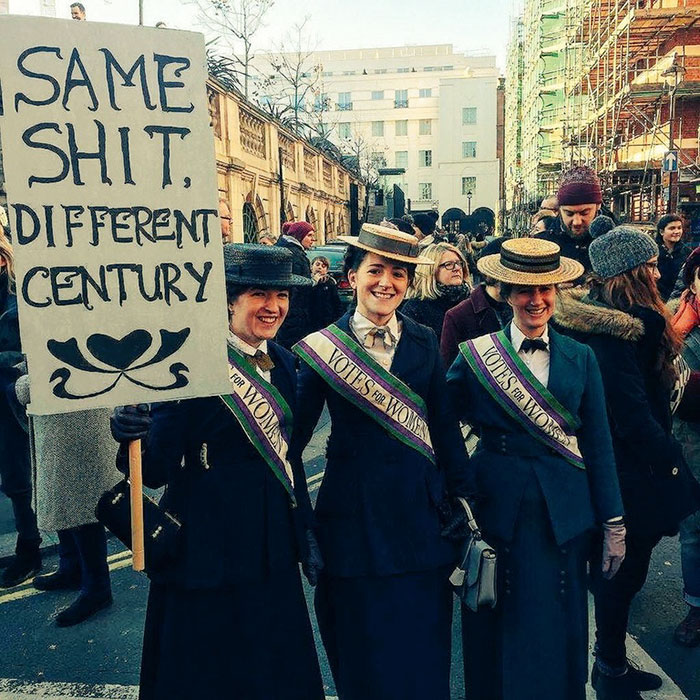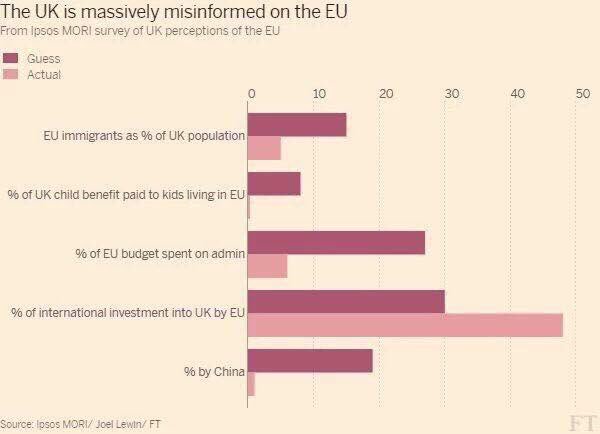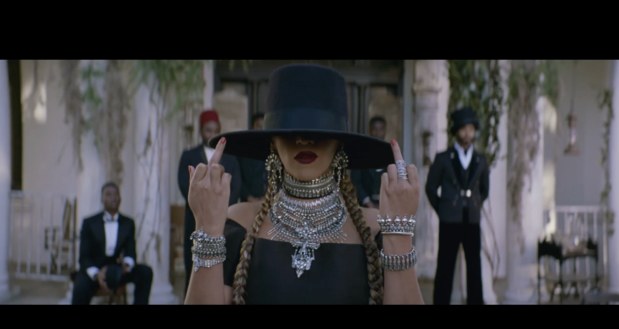
Quick question. Which of these events do you consider the biggest threat to democracy?
Is it a violent mob, bringing together neo-Nazis and QAnon believers with elected Republican officials and off-duty cops, which storms the Capitol, vandalises, loots, attacks journalists, kills a police officer and calls for politicians to be lynched, all in an attempt to overturn a free and fair election, with the encouragement of Republican members of Congress and the president himself?
Or is it the decision of social media platforms to suspend the accounts of that president?
Some people find this a tough call.
It has been a difficult week for commentators on the right, because they assured us last autumn that this wouldn’t happen. “Deplorables don’t riot,” Freddy Gray declared in The Spectator. “This town is not bracing for disgruntled Trump-ists to smash it up,” Douglas Murray insisted on Twitter. “There will be no Trump coup,” Ross Douthat promised in the New York Times. Well, it happened.
Immediately after the invasion of the Capitol, right-wing pundits scrambled for distractions and qualifications. What about violence during Black Lives Matter protests? What if the insurrection wasn’t really that bad because it quickly failed? What if it was, in some way, justified? Election truther and supposed deradicalisation expert Maajid Nawaz told his LBC listeners over the weekend: “If you mess with elections, people… that’s the only outlet they have! That concerns me, because we’ve seen what happens with civil unrest, in the Capitol, right, so it’s elections that are done freely and fairly that prevent that!” (Anyone relying on Nawaz for information might not realise that Trump’s team have had two months and dozens of lawsuits in which to produce solid evidence of election fraud and have failed to do so.)
None of these gambits were working until the cavalry arrived in the form of actual consequences, starting with the cancellation of MAGA Senator Josh Hawley’s book contract and the removal of Donald Trump from social media. Now this was something the pundits could get their teeth into. Free speech! Cancel culture! Slippery slope! Here was their chance to crawl back to their comfort zone of aggrieved self-pity, where they could issue mealy-mouthed pleas for national unity and healing while expandering the parameters of unacceptable wokeness to include anyone who thinks that politicians who incite sedition should not simply carry on as before. I guess Trump boycotters such as Deutsche Bank, Forbes magazine and the Professional Golfers’ Association are woke now.
I do not believe that every form of censorship by a private company is fine just because it’s legal, and I think that Big Tech’s disciplinary procedures require more consistency and transparency, but let’s be clear: there is no Twitter purge of conservatives. Milo Yiannopoulos was permanently suspended in 2016 for targeted harassment and Steve Bannon got the boot last year for saying that Anthony Fauci should be beheaded, but the vast majority of prominent right-wingers aren’t going anywhere. Jack Dorsey and Mark Zuckerberg are not left-wing ideologues. It took years of pressure from users for these platforms to do anything serious about harassment, hate speech, disinformation and threats of violence and it is still inadequate.
While it is amusing to see free-market conservatives suddenly call for Twitter to be heavily regulated or even nationalised, the platform is currently neither a public service nor a human right. It is an online forum which, like every online forum I have used, has rules, moderators and mechanisms for expulsion. Meanwhile, very right-wing opinions are freely aired in numerous newspapers, magazines, websites, bestselling books, TV channels and radio stations.
Perhaps the basic principles of free speech should be taught in schools because many if its noisiest defenders seem unaware that it has any limits whatsoever. Anyone familiar with John Stuart Mill, George Orwell or First Amendment jurisprudence knows that free speech, in philosophy and in law, does not cover speech that is both false and dangerous.
The kind of speech that fomented the attack on the Capitol cannot be euphemised as “challenging opinions” or “viewpoint diversity”. If Trump had not convinced his supporters that he had been robbed of victory, there would have been no mob. If he had not turned on his own vice-president, that mob would not have chanted “Hang Mike Pence.” Twitter is neither legally nor morally obliged to facilitate a coup attempt against Congress and the president-elect. Its ban is unprecedented because it is unprecedented for the man most responsible for radicalising terrorists in the US to be the president, and for a president to face impeachment for a second time. Free speech is fundamental in a democracy but not as fundamental as the peaceful transfer of power, without which a country is not a democracy at all.
It is no surprise to see the Trump loyalists try to change the conversation. Josh Hawley complained that the loss of his book deal is “Orwellian” (it’s not), publishers Simon & Schuster are now a “woke mob” (they’re not), and it is “a direct assault on the First Amendment” (it’s not). Spooky-faced Congressman Matt Gaetz tweeted: “We cannot live in a world where Twitter’s terms of service are more important than the terms in our Constitution and Bill of Rights” (we don’t).
But the ranks of those who are more troubled by a Twitter ban than by an insurrection include people who consider themselves moderate conservatives (Bari Weiss), centrists (Jesse Singal), socialists (Jimmy Dore) and whatever the hell Glenn Greenwald thinks he is (Glenn Greenwald). What’s up with them?
I think many of them have been working the anti-wokeness beat for so long that they have fully convinced themselves that the bigger threat always comes from the left and are therefore unable to process what happened in Washington last Wednesday on its own terms. When you’re obsessed with the danger of Twitter “mobs”, you cannot reckon with the historic enormity of a real mob which attempts to block the certification of an election by force. When you see everything in terms of left v right, you cannot explain an insurrection that threatened Mike Pence and killed a Trump-supporting police officer. When all you have is a hammer, everything looks like a nail. Sure, far-right conspiracy theorists storming the halls of Congress with nooses and zip-ties is bad but… cancel culture?
The endless pictures of the guy who looks like Thor crossed with Jamiroquai risk misrepresenting the attack as a tragicomedy. As CNN reported: “Only later did it become clear that lawmakers feared for their lives; that some of the attackers were hunting for congressional leaders; that there could have been a massacre.” The FBI reports that armed pro-Trump protests are being planned at the Capitol and all 50 state capitols in the days before Biden’s inauguration. Last year, the FBI thwarted a far-right plot to kidnap and execute Gretchen Whitmer, the Michigan governor denounced by Trump. Last Wednesday, several protesters told reporters that they were willing to die for Trump, while some Republican congressmen apparently voted to block certification because they feared for their safety if they did not.
In the face of such extremism, the standard claim that only good arguments can defeat bad arguments just won’t do. Terrorists are not traditionally deradicalised with a trenchant podcast. Fascists do not think again when their logical fallacies are exposed during a lively exchange of views.
Free speech is fragile. There’s a growing number of people, especially young, especially on the left, who do not consider it an important value, in part because they associate it with bad faith on the right. They will probably send you that banal xkcd cartoon about how you have nothing to fear unless “the people listening think you’re an asshole,” which is not exactly on a par with On Liberty. But then nor are the arguments they are countering. The free speech debate has degenerated into a roundelay of glib cliches which avoid any serious discussion of tensions between competing rights.
Conservatives who care about this principle can help to restore its legitimacy by denouncing extremists, drawing red lines and defending free-speech rights that actually exist rather than an anarchic fantasyland of do-as-you-please. Instead, they wail about a sudden drop in Twitter followers (unaware that the banished accounts are bots and QAnon believers rather than thoughtful conservatives who worry about no-platforming on campus), fantasise about a ban that will grant them heroic martyrdom, and turn poor old George Orwell into the “say whatcha like” guy.
The people who have spent years deriding “snowflakes” wallow in victimhood and bemoan the loss of their safe space Parler, the self-proclaimed haven for “civil discourse” that has just been forced offline because it was infested with threats and plots of further violence. (This Bellingcat article screenshots several unmoderated far-right Parler posts prior to January 6.) Pundits who spent four years accusing liberals of hysterical overreaction and Trump Derangement Syndrome think the sky is falling in because the president can’t undermine the election on social media anymore. Those who sneered “Facts don’t care about your feelings” now defend the right of Trump supporters to be upset about election theft that exists only in their minds.
I don’t know what conservatism is meant to be now, but it is no longer about personal responsibility, the rule of law, the preservation of institutions or the right of private companies to decide who uses their services. According to a YouGov poll, 45% of Republicans actively support the mob at the Capitol. Conservatism resembles Bart Simpson when he gets famous for saying “I didn’t do it.” Having rendered itself utterly incapable of self-examination, the movement must blame everything, always, on “the left,” a sinister monolith which extends from anarchist streetfighters to the boardrooms of Facebook. As the New York Times reports, “disdain for the left’s perceived excesses is the most animating, and unifying, force on the right.” Well, what else is there? Popular policies clearly aren’t a priority.
Watching video clips of insurrectionists being arrested over the last few days, I’ve been struck by their shock and indignation. Convinced by the media they consume that only the left is violent and undemocratic, these “patriots” simply cannot believe that they have been apprehended for the criminal acts that they documented and bragged about on social media. Swept up in the president’s furious denial of reality, they are bewildered to discover that their actions do, after all, have consequences.






